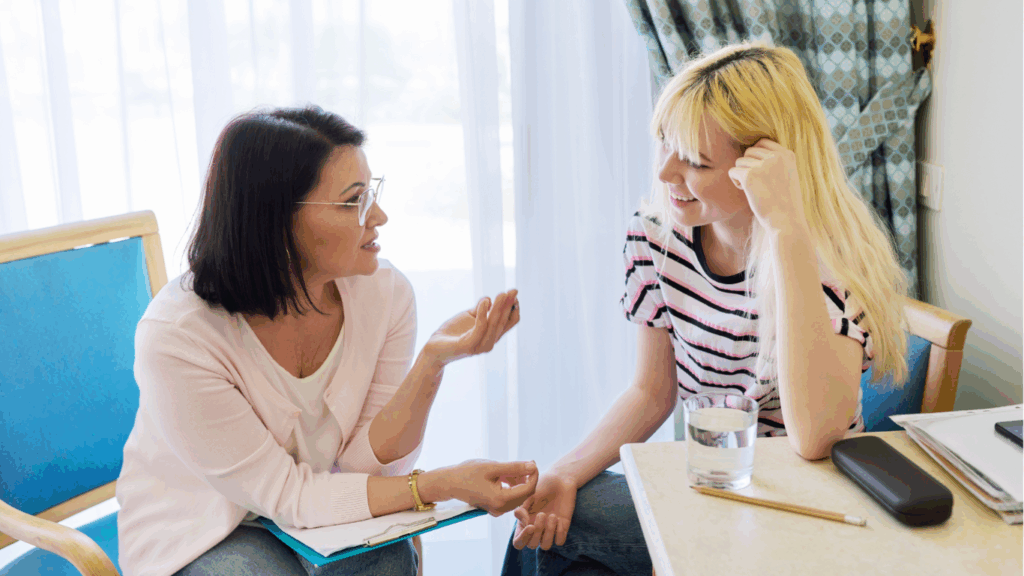There are a variety of techniques you can employ to help your child and your family cope with attention deficit hyperactivity disorder (ADHD). Medication is helpful in many cases, but there are techniques that can help your child learn how to better manage their behaviour.
1. Consider medication
There are differing opinions on the value of medicating children. Before ruling it out, consider whether it could allow your child to have a more successful home and school experience. Make sure that the pediatrician assessing your child’s need for medication is well-trained in ADHD, and considers the viability of not medicating.
2. Dietary management
Experiment. Find out which foods cause an increase in your child’s energy. Not all children increase their activity with sugar and dyes.
3. Behaviour management
Some techniques will work for a while and then become less effective. That’s a sign that it’s time to switch to something else. But just because something stopped working a year ago, does not mean it cannot be tried again.
4. Use appropriate therapy
Many of the therapies commonly used with children, such as play therapy and nondirected talk therapy, are not effective with this condition. Behavior modification, cognitive behavioural therapy (CBT), biofeedback, and relaxation training can be effective for some children and youth. You may also benefit from stress management counselling for yourself.
5. When to drop the issue
When your child cannot focus on a task, leave it and return to it later. Over time, they may develop their own strategies for lengthening their attention span. However, while they are young, it is likely that when they appear finished, they really are finished and need to move on. Respect this. Later, guide the child back to the task. Chores, such as cleaning the bedroom, can be broken into small tasks that are undertaken throughout the day. While this method will never result in a completely clean room, it will mean that parts of the cleaning are done each day so that neither the child nor you are overwhelmed by a mess. It also allows them to see that they can contribute toward organizing their own life.
6. Avoid long explanations
Children and youth who have attention problems often also have co-existing memory problems (or they easily forget what they have been told because they cannot stay focused enough to listen). Explain things in as few words as possible. Keep the explanation basic and short. If the issue is complicated, try explaining it over a period of time. And remember to re-explain frequently.
7. Difficult points of the day
Make note of which parts of the day or week are the most difficult for your child and plan around them. If they are always a problem right after school, make sure that this is never the time you take them shopping or to an appointment. If they have problems on Fridays, then this is a goof day for the family to go to the local swimming pool or to undertake some other activity that involves extensive use of the body’s larger muscles. If they are always scattered and have had serious problems at school for the last two months of the year (nine or 10 months of school is too long for most children with ADHD), then try to work out an agreement with the school so that they only attend four days a week. A proactive approach to this problem can give him a better school record.
8. Chores
The child with ADHD can manage their share of the chores just as well as the other children. However, they will most likely complete chores that can be done quickly and which have a clear finish like emptying the dishwasher. Sweeping a floor may not be a good choice—it is too easy to miss spots and to ignore major parts of the floor.
9. Reduced homework load
Try to negotiate with the teacher for a reduced homework load. Your child or teen will have trouble focusing by the end of the day; too much homework requiring parental supervision can set the stage for intense daily parent/child conflict. If the homework load cannot be reduced, try to break it up into smaller time chunks. Your child can do one part right after school and another right after supper.
10. Sports
Swimming is excellent because it uses large muscle groups and leads to sports as a recreational activity. Complicated teamwork may not be fitting for children with ADHD since the kids may become frustrated with the rules, causing conflict with their teammates.
11. Educate your child
Your child needs to understand what it means to have ADHD, how it impacts their life, and how they can learn to manage it. This will help them to take control of their own symptoms and to become responsible for their behaviour.
12. Give lots of encouragement
Your child will hear enough criticism, so make sure they also feel encouraged as they go through the day.
13. Avoid overstimulation
If you know that they cannot tolerate a grocery store with all the people and all the things they like to touch, then don’t take them shopping when you don’t have to. As they get older, there will be time and opportunity to teach them how to manage their behaviour despite distractions.
There will be situations that are impossible to avoid (family weddings, school events, shopping, etc.). Find something that can help your child to focus at such events, and teach them how to do this. For example, you can take a hand-held video game for them to play when their attention jumps and their energy escalates. They can learn to play with the game as a means of rechanneling their thoughts and energy and of temporarily shutting out the overwhelming input coming from their environment.
14. Stop, think, and plan
Since impulse control is a major issue, teach them to stop, think, and plan. While they are growing up, you will have to be the person who tells them to stop, then helps them to consider what is going on around them, to look at what others are doing, and then to plan what they can do that will not make everyone mad at them. This takes a year or two to become a successful habit, but the payoff is worth the time.
15. Lists
They can learn to write out, or to use symbols for, daily activities, chores, or reminders of what they have to do. This is likely something that they will have to rely on all their life. Starting young can ingrain the habit. They can carry the list in their pocket, put it on the fridge door, or on the mirror in their bedroom. They can make the list each morning, or they can make a list for the next day before they go to bed each evening.
16. Learning how to prioritize
Your child with ADHD cannot determine what is important and what is not. Help them consider what needs to be done right away versus what can be done later.
17. Attention span
Your child will have difficulty staying with one task from beginning to end. For example, they may repeatedly jump up from the dinner table to phone a friend, watch TV, or play with the dog. Each time they do this, bring them back to the table immediately and have them resume their meal. No matter how tired you are, don’t make exceptions. And do this with a friendly tone of voice.
18. Mood fluctuations
Mood fluctuations may be from medication or environmental stimulation and can change within seconds. Help them refocus or redirect them to something that will not cause frustration, letting their mood pass.
19. Monitoring behaviour
Your child cannot monitor their own behaviour, but they can learn to watch other people to see how they are reacting to them. Teach them to notice when their friends are trying to stop playing, or whether the teacher is starting to look mad. They can learn to use these signals and try to slow down and refocus. This process will take several years to learn, but when used successfully will continue to be useful into their adult years.
Adapted with permission from Parenting Your Adopted Older Child.





